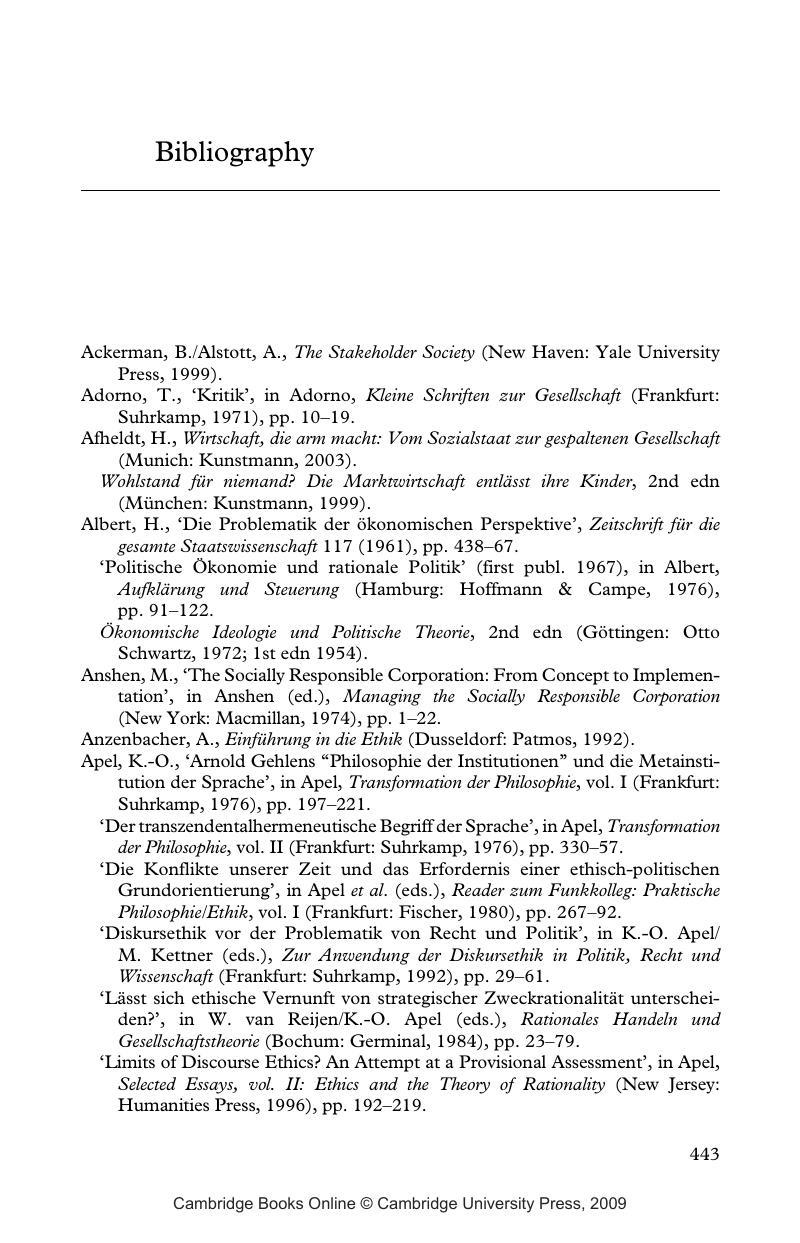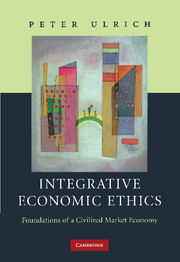Book contents
- Frontmatter
- Contents
- List of figures
- Preface
- Translator's note
- Introduction: orientation in economic-ethical thinking
- Part I Fundamental concepts of modern ethics and the approach of integrative economic ethics
- Part II Reflections on the foundations of economic ethics I: a critique of economism
- Part III Reflections on the foundations of economic ethics II: rational economic activity and the lifeworld
- Part IV A topology of economic ethics: the ‘sites’ of morality in economic life
- Bibliography
- Index of subjects
- Index of names
- References
Bibliography
Published online by Cambridge University Press: 22 September 2009
- Frontmatter
- Contents
- List of figures
- Preface
- Translator's note
- Introduction: orientation in economic-ethical thinking
- Part I Fundamental concepts of modern ethics and the approach of integrative economic ethics
- Part II Reflections on the foundations of economic ethics I: a critique of economism
- Part III Reflections on the foundations of economic ethics II: rational economic activity and the lifeworld
- Part IV A topology of economic ethics: the ‘sites’ of morality in economic life
- Bibliography
- Index of subjects
- Index of names
- References
Summary

- Type
- Chapter
- Information
- Integrative Economic EthicsFoundations of a Civilized Market Economy, pp. 443 - 470Publisher: Cambridge University PressPrint publication year: 2008



